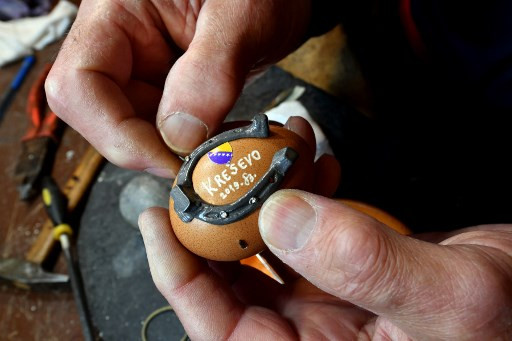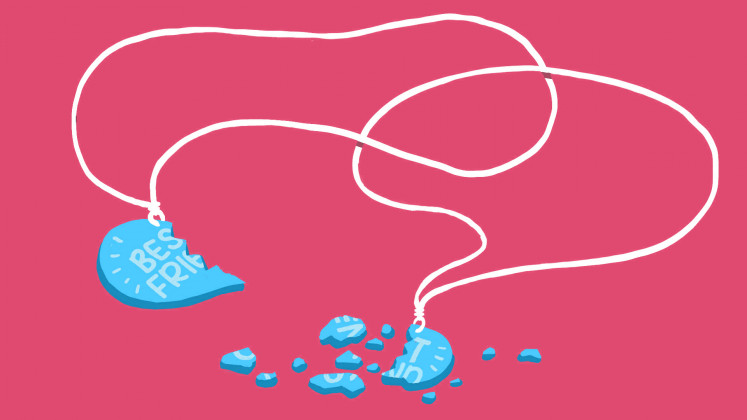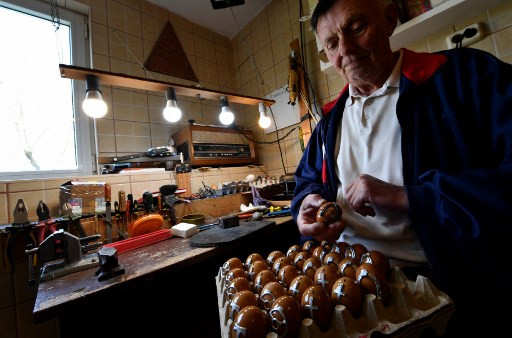Popular Reads
Top Results
Can't find what you're looking for?
View all search resultsPopular Reads
Top Results
Can't find what you're looking for?
View all search resultsIn Bosnia, 'master' blacksmith had to shoe an egg
Change text size
Gift Premium Articles
to Anyone
T
o be worthy of the title of master, a blacksmith in Kresevo in central Bosnia had to perform a delicate task -- shoe an egg without breaking it.
It's an Easter tradition requiring a blacksmith to decorate an egg shell by nailing on it a miniature iron horseshoe.
Now Stjepan Biletic wants to have this ancient know-how recognised by UNESCO as part of the world's cultural heritage.
Stjepan Biletic, 71, handcrafts man from Central-Bosnian town of Kresevo, shows a full stack of miniature horseshoe nailed eggs, in his workshop, on April 17, 2019. (AFP/Elvis Barukcic)
"That is the most beautiful gift one can offer to a friend, a neighbor, a girlfriend or wife," the 71-year-old craftsman said.
As the Easter holiday approaches, people flock to his small workshop in this village -- population around 5,300 -- almost 80 percent of whom are Catholic Croats.
But Biletic works all year long. His shod eggs, which sell for 3.0 to 7.5 euros ($3.30 to $8.40) per piece, help him make ends meet as a retired teacher. But more than money, he wants to maintain a tradition he believes should be preserved.
Started in the 18th century, the practice was designed to test and show the virtuosity of blacksmith apprentices.
Read also: Forests, dry wit and a big bunker: Five things about Bosnia
"The shod egg was at the time analyzed by the masters. If it was intact, if the shell was not damaged, they would extend the hand to the apprentice to congratulate him," and thereby welcome him into the fellowship, said Biletic.
"That was his diploma, he became a 'doctor' of his profession'," he added.
The shoeing of eggs was originally done with iron. But today Biletic uses lead, a more flexible metal.
It is this traditional craftsmanship that Bosnia would like the UN cultural agency to include on the UNESCO list of the world's intangible cultural heritage.
Biletic and a few other enthusiasts in his village are preparing the case, based on historical sources, that the world's first shod egg was made in Kresevo.
Centuries on, shoppers still visit Biletic's workshop to buy his decorated eggs, even in the colors of their favorite football club, Croats for Hajduk Split or Sarajevans for Zeljeznicar.












